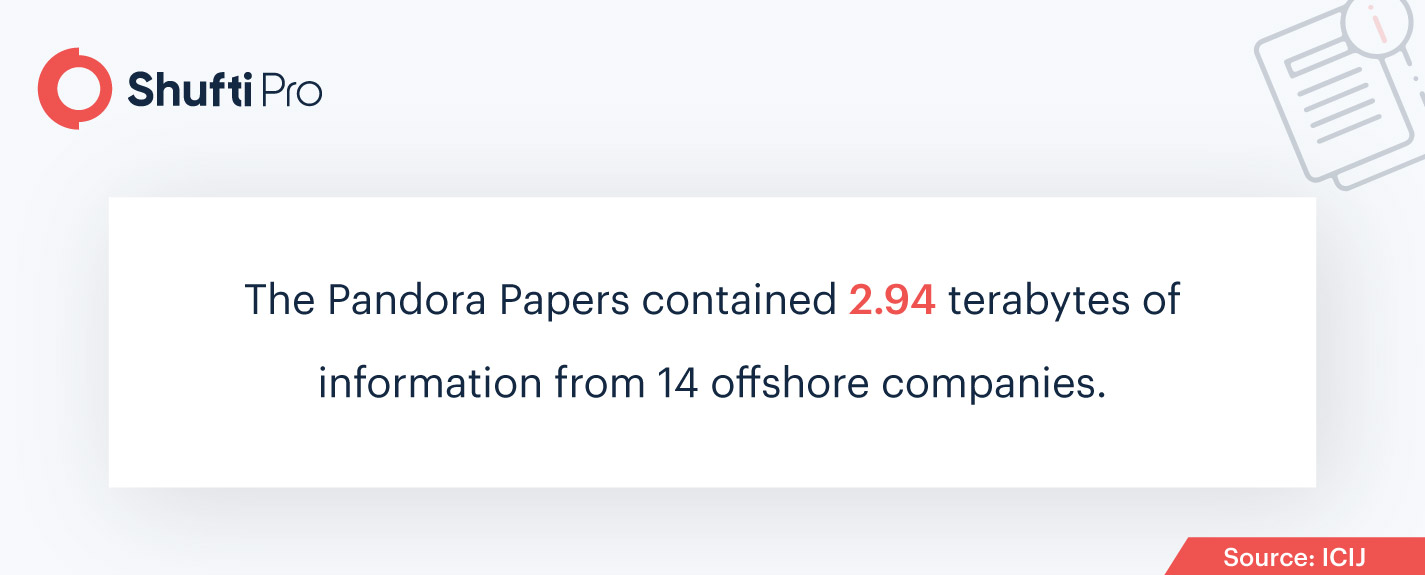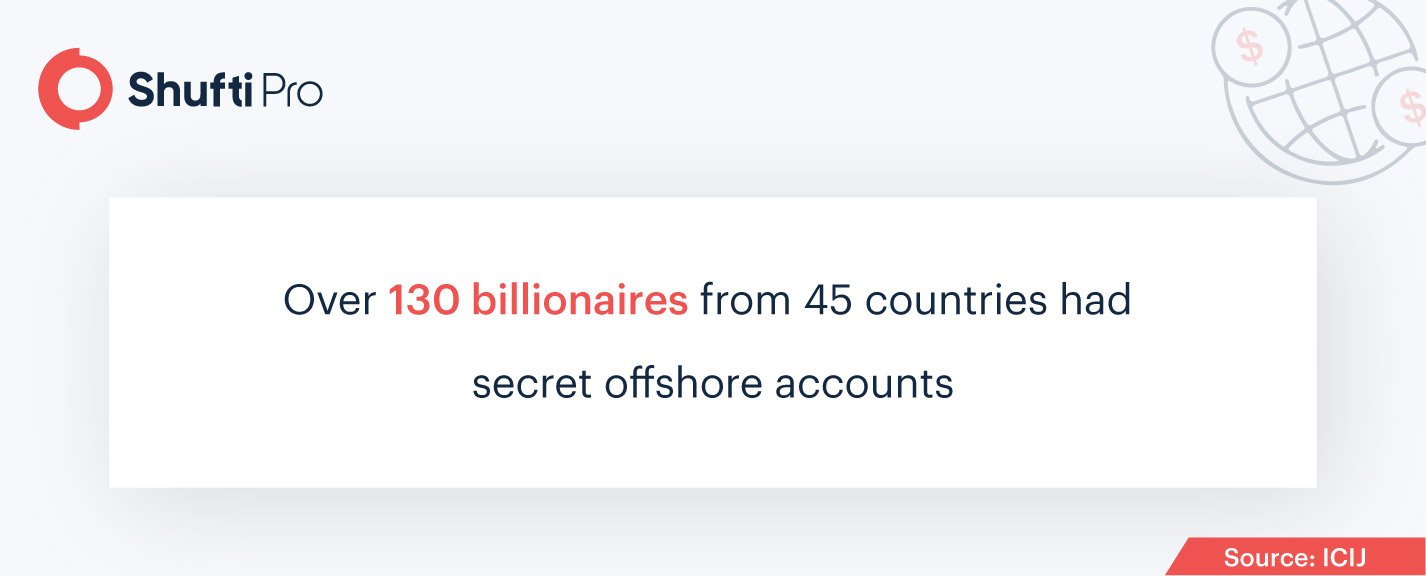Pandora Papers Pushing Global Authorities to Bridge Regulatory Gaps

The Pandora Papers have made headlines for not only exposing offshore dealings of the rich but also pointing out flaws in the global financial paradigm. With over 11.9 million leaked confidential files, these papers shed light on the hidden financial structure, due to which the subject of beneficial ownership is currently abuzz. “The most comprehensive leak of offshore data in history”, according to the International Consortium of Investigative Journalists (ICIJ), exposed 35 world leaders and 300 public officials who created offshore accounts through shell companies in order to avoid taxes.
With the evolving regulatory landscape, the aim of global lawmakers is to hold these overseas shell companies accountable. For instance, the UK is working on publicizing a beneficial ownership register containing information about overseas companies that own properties and other legal entities in 2021. Similarly, the US Corporate Transparency Act intends to fill in the loopholes in the regulatory system by addressing issues such as individuals creating shell companies to hide sources of money. FinCEN (Financial Crimes Enforcement Network) has even initiated plans to ask antique dealers to comply with AML guidelines.
Suggested read: Antiquities Market – A Conduit of Money Laundering and Terror Financing
What is the Beneficial Owner of a Business?
The beneficial owner of a business is anyone who owns and controls more than 25% of the company’s shares and rights to vote in stocks. Identifying the beneficial owners of companies is important to eliminate anonymity, which is the reason behind most illicit financial crimes such as money laundering, tax evasion, and terrorism financing.
One of the major loopholes brought to the forefront by the Pandora Papers is the lack of regulatory scrutiny in real estate and law firms. Since AML compliance requirements are relatively lenient in real estate firms as compared to the financial sector, these firms do not have effective measures to prevent money laundering and tax evasion. This is the reason why many prominent names in the Pandora Papers were sourced by such firms. Creating offshore companies or accounts is not an illegal activity in itself, but it does provide an open window to fraudsters, money launderers, and tax evaders as proven by the Pandora Papers.
FATF’s New Requirements for Beneficial Ownership
In the public statement on Pandora papers issued recently, the FATF claims that a significant majority of countries do not implement the necessary measures despite global standards being introduced since 2003. The FATF’s efforts to put an end to shell companies have been in vain owing to the lack of responsive actions from nations around the world.
Although more than 200 countries are known to have regulated their financial landscape by implementing systems to identify and verify beneficial ownership, there are still many others that do not follow the same pattern. The FATF’s efforts to make significant updates to the international requirements on beneficial ownership are indicated by “Recognizing the urgent need to take further action to combat the misuse of shell and front companies by illicit actors”.

Updates to Recommendation 24
After public consultations, proposals for amending Recommendation 24 of the FATF have just been published, which are aimed at ensuring transparency in beneficial ownership. The proposed changes include improvements to the language used in the Recommendation and enforcing nations to make efforts to mitigate risks. For instance, the existing Recommendation states: “Countries should take measures to prevent the misuse of legal persons for money laundering or terrorist financing,” and according to the proposed amendments, it would be changed to “Countries should assess the risks of misuse of legal persons for money laundering or terrorist financing, and take measures to prevent their misuse.”
The amendments also include restricting the distribution of bearer shares, which provide full ownership rights to the holder without the need for registration. Several countries like Hong Kong, Australia, and Singapore have already implemented stringent restrictions and do not permit bearer shares, while others are still working on strengthening measures against them. The proposed updates will enforce the establishment of beneficial ownership registries on national levels or implement an alternative strategy that “enables efficient access to beneficial ownership information by competent authorities”.

Reinforced AML Regulations
As of June 2021, the FATF encouraged technological innovations to prevent countries from slowing down their progress related to development in risk-based financial standards. The global watchdog also published reports on virtual assets and environmental crime. In the last few months, new reforms were introduced in many countries, such as New Zealand asking for feedback on the updates to its AML/CFT Act, and the Philippines’ AMLC-based beneficial ownership.
On the contrary, Singapore introduced a platform to combat money laundering through information-sharing. Australia also had the support of its banks and fintech companies in filling out the gaps in its anti-money laundering legislation. Also in June, several G7 nations like Japan agreed that beneficial ownership registries can prevent fraudsters from exploiting company structures. The countries also reached an agreement to reinforce their national procedures for registering the information of companies’ beneficial ownership.
FinCEN Files Indicate Weak Links in Banking
FinCEN Files have shed light on five global banks that went against financial regulations and assisted bad actors in illicit crimes. These include prominent banking names like HSBC, JPMorgan, Standard Chartered, Deutsche Bank, and Bank of New York Mellon. FinCEN Files show that these banks profited from the illicit financial activities of criminals even after they were fined by US authorities for earlier AML compliance failures.
The US agencies in charge of the enforcement of anti-money laundering laws only held these big banks accountable for breaking laws once in a while, and even when they do, their actions hardly manage to clean up the mess created in the global financial picture. In many reported cases, these banks were the sources of illicit transactions despite US authorities issuing warnings and notices about the consequent criminal proceedings unless they stopped assisting corrupt entities.
The Urgency for Accountability
Even though the offshore companies and operations highlighted in the Pandora Papers are legal, financial institutions are overburdened as they have to differentiate between the illegally obtained funds and the legitimate money to adhere to compliance requirements. Therefore, large-scale accountability is the need of the hour as indicated by the current situation. Political entities, offshore companies, and even governments must be held accountable for crimes like money laundering and tax evasion.
Measures like enhanced due diligence, Know Your Customer (KYC), and AML Screening can allow the financial sector to get better insights into the transaction data of politically exposed persons (PEPs) and wealthy individuals. The misuse and obscurity of sources of money can be intercepted using AML solutions that screen against global watchlists to determine high-risk entities. Unless accountability is ensured, there are no barriers to prevent financial crime as seen in the Pandora Papers.
Key Takeaways
Considering the present situation, compliance with global financial regulations has become a necessity for businesses and banks alike. To assist companies in implementing measures for AML compliance, Shufti offers identity verification and AML Screening solutions that enable companies to onboard legitimate customers and verify beneficial ownership. Shufti’s AI-based AML solutions identify high-risk entities through background screening against 1700+ global watchlists.
Want to learn more about compliance with AML regulations?

 Explore Now
Explore Now













